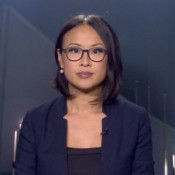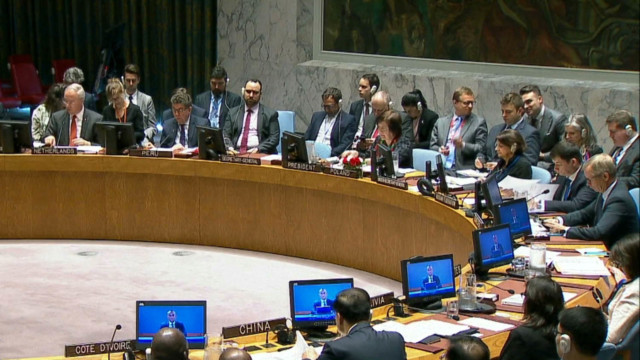On Tuesday, the United Nations Security Council convened an emergency meeting to address the violence on the Gaza border between Israeli forces and Palestinian protesters. But once again, the U.N.’s most powerful arm remained divided over what to do to solve this latest crisis and bring opposing sides back to peace talks.
CGTN’s Liling Tan reports.
The emergency Security Council meeting amplified the disconnect we saw on Monday, when images of celebrations around the opening of the U.S. embassy in Jerusalem were juxtaposed against scenes of deadly clashes on the Gaza-Israel border.
That same disconnect pervaded the Security Council on Tuesday.
Addressing the Security Council, Palestinian Ambassador Riyad Mansour asked member states what their countries would have done: “Would they accept that the Security Council remain paralyzed, doing nothing in the face of these crimes and massacres which are organized by the cowardly Israeli occupation authority, which is hiding in the hills some one kilometer away from the civilians in Gaza?”
The divide again pit Israel and the U.S. against the rest of the Security Council, with U.S. Ambassador Nikki Haley saying those who suggest the bloodshed were tied to the opening of the embassy in Jerusalem were sorely mistaken.
“Let’s remember that the Hamas terrorist organization has been inciting violence for years, long before the United States decided to move our embassy,” said Ambassador Haley.
“No country in this chamber would act with more restraint than Israel has,” she added.
Also addressing the Council, Israeli Ambassador Danny Danon blamed Hamas for inciting the Palestinians to violence.
“First, they incite people to violence. Then they place as many civilians as possible, including women and children in the line of fire to maximize civilian casualties,” said Ambassador Danon. “Then, they blame Israel, and then they come here to complain to the U.N.”
Other Security Council members decried the Gaza violence, and questioned the Israeli response.
China expressed serious concern about Israel’s use of force, and stressed that the final status of Jerusalem should be settled through negotiations, while the U.K. Ambassador Karen Pierce delivered a unified message on behalf of European Union members on the Security Council.
“While recognizing the right to protect its borders, we expect Israel to respect the fundamental right to peaceful protest and the principle of proportionality in the use of force when defending its legitimate security interests,” said Ambassador Pierce.
The U.S. had reportedly earlier blocked a Security Council draft statement calling for an investigation into the Gaza violence, as it had done with a similar resolution in April.
Along with its controversial decision to relocate its embassy to Jerusalem, the growing concern here is that the U.S. has become a bigger part of the problem, rather than the solution.
Perry Cammack on the growing Israeli-Palestinian divide
CGTN’s Asieh Namdar discusses the tragic developments in Gaza and the growing Palestinian-Israeli divide with Perry Cammack, fellow of Middle East Programs at the Carnegie Endowment for International Peace.
 CGTN America
CGTN America

